The Vatican's child abuse response
- Published
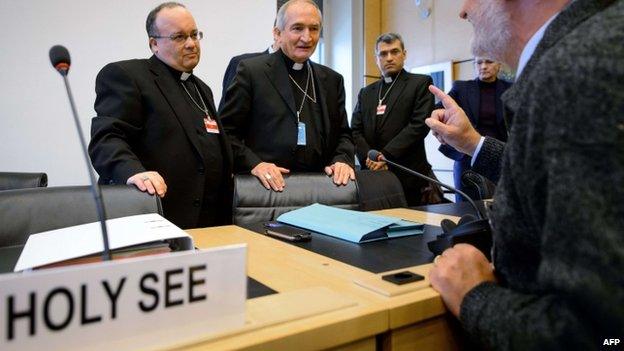
This is the first time the Holy See is defending itself in public over its sex abuse record
The UN has accused the Vatican of "systematically" adopting policies allowing priests to sexually abuse thousands of children.
Pope Francis has said that dealing with abuse is vital for the Church's credibility, and that "sanctions" must be imposed against perpetrators.
But the Church has been accused of failing to address some allegations properly.

When did the scandals surface?
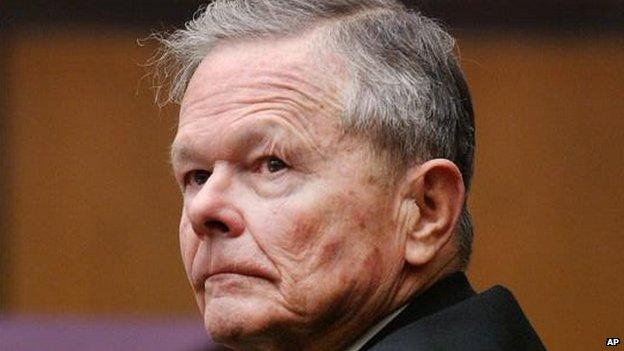
US priest John Geoghan was jailed for his crimes, and later killed in prison by another inmate
The sexual abuse of children was rarely discussed in public before the 1970s, and it was not until the 1980s that the first cases of molestation by priests came to light, in the US and Canada.
In the 1990s, revelations began of widespread abuse in Ireland.
In the new century, more cases of abuse were revealed in more than a dozen countries.

How damning are the allegations?
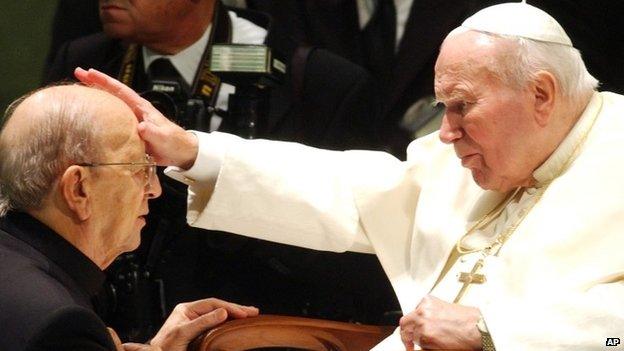
Father Marcial Maciel enjoyed the support of Pope John Paul II for many years
Two major reports into Irish allegations of paedophilia in 2009 revealed the shocking extent of abuse, cover-ups and hierarchical failings involving thousands of victims, and stretching back decades.
In one, four Dublin archbishops were found to have in effect turned a blind eye to cases of abuse from 1975 to 2004.
A fresh scandal erupted in March 2010 when it emerged the head of the Irish Catholic Church, Cardinal Sean Brady, was present at meetings in 1975, external where children signed vows of silence over complaints against a paedophile priest, Fr Brendan Smyth. This prompted Pope Benedict XVI to apologise to Irish victims.
In the US, the Boston Archdiocese has been worst hit, with the activities of two of its priests, Paul Shanley and John Geoghan, causing public outrage. Cardinal Bernard Law resigned over the scandal in 2002.
In Mexico, the founder of the Legion of Christ order, Marcial Maciel, long admired by Pope John Paul II, was disciplined by the Vatican in 2006 over the abuse of boys and young men over a period of 30 years. The Legion insisted his was an isolated case, but seven more priests of the order have been investigated.
The bishop of the Belgian city of Bruges, Roger Vangheluwe, resigned, external in 2010 after admitting that he had sexually abused a boy for years.

How has the Vatican responded?
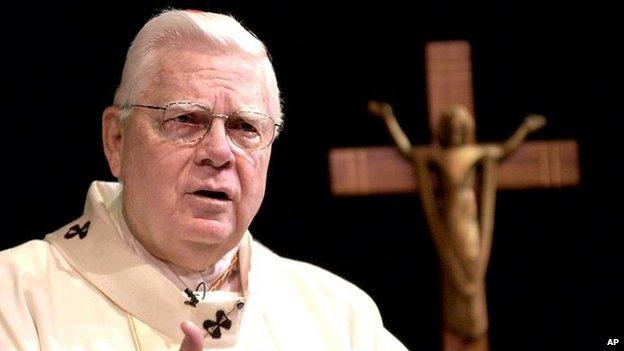
Cardinal Law resigned in 2002 over the mishandling of sex abuse cases
Since his election last year, Pope Francis has appeared to offer new hope to victims, with a call for action on sex abuse in the Church. Under his papacy, a Vatican committee has been set up to fight sexual abuse and help victims.
In a report by Vatican Radio, external, the Pope asked for forgiveness for the "evil" damage to children caused by sexual abusers in the clergy and said "sanctions" would be imposed.
Vatican officials submitted publicly to questioning for the first time in January 2013, before a UN panel in Geneva, but refused to supply data on abuse cases.
Pope Francis's predecessor, Benedict XVI, was accused of suppressing the investigation of paedophile priests, a charge he denied last year.
When the first scandals emerged in 2001, the Vatican issued guidelines for senior clergy on how to handle paedophile priests, which stated that all cases should be referred to Rome. Until then, all cases had been handled by the Church in the country concerned.
After a spate of new cases in 2010, the Vatican issued new rules saying bishops should report suspected cases of abuse to local police, if required to do so by law.

What does the UN say?
The UN's Committee on the Rights of the Child (CRC) said the Vatican should "immediately remove" all clergy who are known or suspected child abusers.
In a strongly worded report, it lambasted the Holy See's "practice of offenders' mobility", referring to the transfer of child abusers from parish to parish within countries, and sometimes abroad.
It complained that the Holy See had not acknowledged the extent of crimes committed and had not taken the measures necessary to address cases of child sexual abuse and to protect children.

What do the victims say?
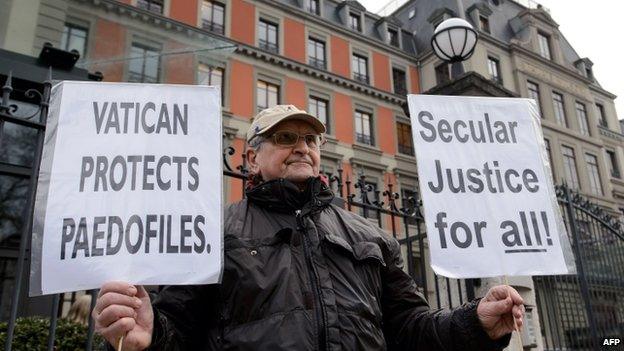
Many campaigners feel the Vatican has been dragging its feet
Victims' groups have responded to almost every move by the Vatican with scepticism.
Reacting to the UN report in February, Barbara Blaine, the president of Snap (Survivors Network of those Abused by Priests), external, said it was clear that the Vatican had put the reputation of Church officials above protection of children.
"Despite all the rhetoric from Pope Francis and Vatican officials, they refuse to take action that will make this stop." she said.